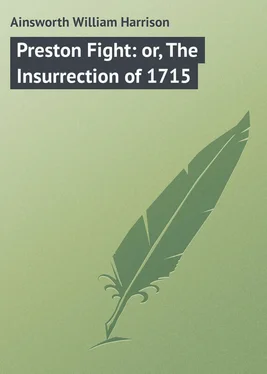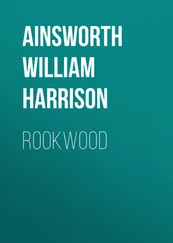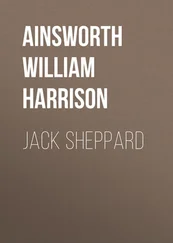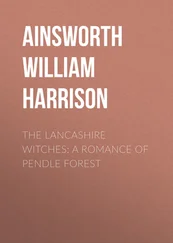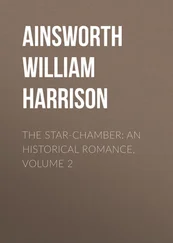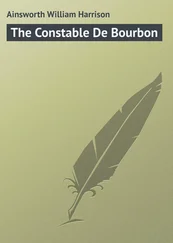William Ainsworth - Preston Fight - or, The Insurrection of 1715
Здесь есть возможность читать онлайн «William Ainsworth - Preston Fight - or, The Insurrection of 1715» — ознакомительный отрывок электронной книги совершенно бесплатно, а после прочтения отрывка купить полную версию. В некоторых случаях можно слушать аудио, скачать через торрент в формате fb2 и присутствует краткое содержание. ISBN: , Жанр: foreign_prose, на английском языке. Описание произведения, (предисловие) а так же отзывы посетителей доступны на портале библиотеки ЛибКат.
- Название:Preston Fight: or, The Insurrection of 1715
- Автор:
- Жанр:
- Год:неизвестен
- ISBN:http://www.gutenberg.org/ebooks/49851
- Рейтинг книги:4 / 5. Голосов: 1
-
Избранное:Добавить в избранное
- Отзывы:
-
Ваша оценка:
- 80
- 1
- 2
- 3
- 4
- 5
Preston Fight: or, The Insurrection of 1715: краткое содержание, описание и аннотация
Предлагаем к чтению аннотацию, описание, краткое содержание или предисловие (зависит от того, что написал сам автор книги «Preston Fight: or, The Insurrection of 1715»). Если вы не нашли необходимую информацию о книге — напишите в комментариях, мы постараемся отыскать её.
Preston Fight: or, The Insurrection of 1715 — читать онлайн ознакомительный отрывок
Ниже представлен текст книги, разбитый по страницам. Система сохранения места последней прочитанной страницы, позволяет с удобством читать онлайн бесплатно книгу «Preston Fight: or, The Insurrection of 1715», без необходимости каждый раз заново искать на чём Вы остановились. Поставьте закладку, и сможете в любой момент перейти на страницу, на которой закончили чтение.
Интервал:
Закладка:
One of these emissaries was now concealed, as we have stated, among the trees overhanging the glen. Without betraying himself, he got sufficiently near the party to hear their discourse, and soon learnt enough to convince him that the plainly attired, but distinguished-looking young man, whom he beheld, and to whom so much attention was paid by Charles Radclyffe and the rest, was no other than the Chevalier de Saint George.
As soon as he had clearly ascertained this point, he stole away, mounted his horse, which he had left in a thicket near the moor, and galloped off to convey the important information to Sir William Lorraine.
On reaching Bywell Park, he found the high sheriff anxiously expecting him, and called out:
“I have seen the Pretender, Sir William – seen him with my own eyes.”
“You are certain of it, Jesmond?”
“I saw him in the glen by the side of the Devil’s Water. He had a large party with him, and I heard several of ‘em address him as ‘your majesty.’”
“Enough,” cried the high sheriff. “You have done your work well, Jesmond. But where have you left Hedgeley?”
“I’ve seen nothing of him since we got to Dilston, Sir William. He went to the castle, and I went to the grounds. I took the right course it appears, for I soon found the person I was looking for, and without asking any questions, or letting myself be seen.”
“I hope Hedgeley has not been seized as a spy,” said the high sheriff.
“If he has, he’ll tell nothing, Sir William. Don’t fear him. If you want to take the place by surprise tomorrow, you can do it. His lordship has taken no precautions. With half a dozen mounted men I could have taken the Pretender prisoner myself, and have carried him off.”
“I wish you had done so, Jesmond,” laughed the high sheriff. “It would have saved me the trouble of getting a party of men together. I must set about the task without delay. You think all will be safe at Dilston till tomorrow?”
“Not a doubt about it, Sir William. Lord Derwent-water’s guests seem to be amusing themselves. I think – from what I overheard – that his Lordship has a grand banquet to-day. Certainly, some festivities are taking place at the castle.”
“It would be a pity to disturb them,” said the high sheriff. “To-morrow I will present myself at the castle with sufficient force to render all resistance useless.”
Hedgeley, the emissary to Dilston, had not fared so well as his comrade. Stopped at the gate, and unable to explain his business entirely to the porter’s satisfaction, he was locked up in a strong room for the night. This was done by Colonel Oxburgh’s order, who chanced to be in the court at the time, and interrogated him. Except detention, the spy had nothing to complain of, for he had plenty to eat and drink.
Jesmond had correctly informed the high sheriff, when he told him that a grand dinner would be given that day at the castle. A vast deal of handsome plate was displayed at the banquet, which was far more agreeable to the noble host than the dinner of the previous day, since it was graced by the presence of his affianced bride, who now sat next to him, and looked more charming than ever, being beautifully dressed, and in high spirits. The prince was likewise in a very lively mood, and contributed to the general gaiety at the upper end of the table.
In the evening there was music in the grand saloon, which was brilliantly lighted up for the occasion. Anna produced a great effect, and her magnificent voice enraptured the prince as much as it had enraptured Lord Der-wentwater when he first heard it.
Very different in style, but equally effective in their way, were some simple ditties sung with great taste and feeling by Dorothy Forster.
As we have intimated, the prince was in a very gay humour and seemed to take no thought of the morrow – though that morrow had much in store for him. He talked lightly with Anna and Dorothy, laughed and jested with Sir John Webb, Colonel Oxburgh, and Forster, but he talked seriously with no one.
So passed his last night at Dilston Castle.
XV. – A GENERAL DEPARTURE
A BRIGHT day dawned on Dilston. Fair looked the garden with its lawn and terrace, inviting those within the mansion to stroll forth and enjoy the freshness of the morn. So calm and still was all around that the rippling of the hidden burn could be distinctly heard in the deep glen. Within the park, beyond the old grey bridge that linked it with the grounds, the deer could be seen couched beneath the oaks. The neighbouring woods, the dark moorland in the distance, over which hung a thin mist, the river glistening here and there through the trees – all completed a picture which was seen by more than one of the earl’s guests, and often recalled by them.
The prince was amongst those who brushed the dew from the lawn, and gazed at the charming prospect. He likewise attended matins in the little chapel.
As he was returning from the service with Lord Der-wentwater, he met Colonel Oxburgh, and was struck by the grave expression of his countenance.
“Good morrow, colonel,” he said, returning the other’s military salute. “I fear, from your looks, that you have some bad news to give me.”
“What I have to tell your majesty demands instant consideration and decision,” replied Oxburgh. “By some means or other, your arrival has been discovered by Sir William Lorraine, the high sheriff of the county, and yesterday afternoon he sent a spy here to make sure that he had not been misinformed. The fellow was suspected and locked up for the night, but it was only this morning that I forced him by threats to confess his errand. It is certain from what he says that the sheriff will come here with a strong party of men to secure your majesty’s person.”
Lord Derwentwater looked aghast at this startling intelligence, but the prince did not seem much disturbed by it.
“Instant measures must be taken for the defence of the place,” said Lord Derwentwater.
“It cannot be defended, my lord,” rejoined Colonel Ox-burgh. “His majesty must not remain here.”
“Do you counsel flight, colonel?” said the prince.
“Not flight – but a retreat, my liege,” replied Oxburgh.
“No need to fly,” said Lord Derwentwater. “I will undertake to conceal his majesty from any search that can be made for him.”
“Better he should seek shelter in some fortified house or castle,” observed Oxburgh.
“But where?” demanded the prince. “Where would you have me go?”
“If your majesty will not remain here, and trust yourself to me, I advise you to go to Bamborough Castle,” said Lord Derwentwater.
“But is Forster to be relied on?” said the prince. “Is he thoroughly loyal?”
“I’ll answer for him with my life,” said the earl.
“And so will I, my liege,” added Oxburgh.
“Then I’ll trust him,” said the prince.
“Shall I acquaint him with your majesty’s determination?” inquired the earl. “No time must be lost.”
“I’ll go to him myself,” rejoined the prince.
“Ah! here he comes!” exclaimed Colonel Oxburgh.
As he spoke, Forster was seen descending the steps with Sir John Webb, and immediately obeyed a summons given him by the colonel.
He was as much alarmed as the others when he learnt the prince’s jeopardy, and before his highness signified his intention, offered him an asylum at Bamborough.
It was then decided that the prince’s departure should take place forthwith, and it was likewise arranged that Lord Derwentwater with Colonel Oxburgh and his troop should escort his highness.
Some further arrangements were subsequently made, but these were sufficient in the meantime, and Colonel Oxburgh and Forster hurried off to the stables to give directions about the horses, while the prince and Lord Derwentwater entered the house.
Читать дальшеИнтервал:
Закладка:
Похожие книги на «Preston Fight: or, The Insurrection of 1715»
Представляем Вашему вниманию похожие книги на «Preston Fight: or, The Insurrection of 1715» списком для выбора. Мы отобрали схожую по названию и смыслу литературу в надежде предоставить читателям больше вариантов отыскать новые, интересные, ещё непрочитанные произведения.
Обсуждение, отзывы о книге «Preston Fight: or, The Insurrection of 1715» и просто собственные мнения читателей. Оставьте ваши комментарии, напишите, что Вы думаете о произведении, его смысле или главных героях. Укажите что конкретно понравилось, а что нет, и почему Вы так считаете.
